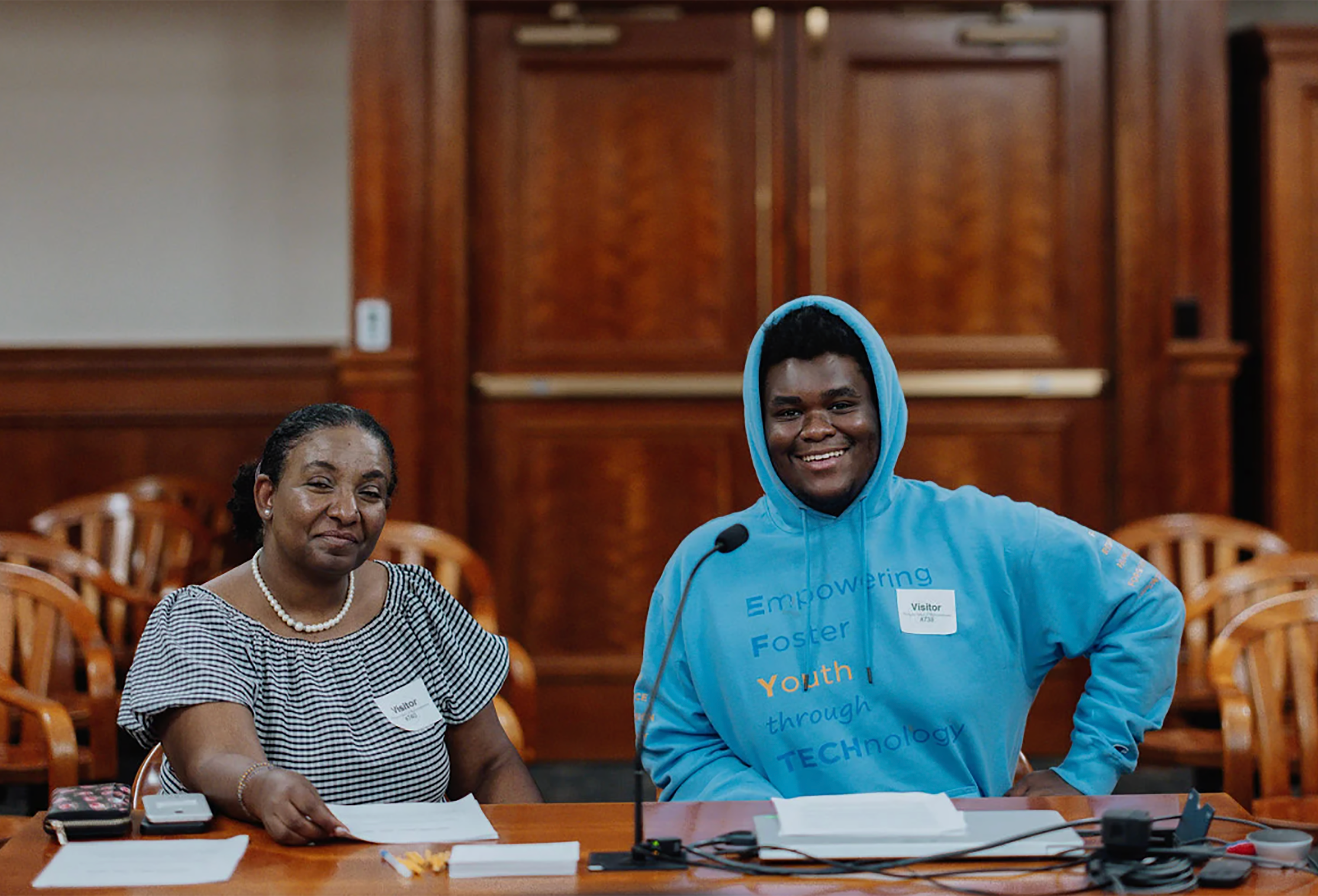Michigan’s governor signs law to help foster youth earn diplomas
DETROIT — A new Michigan law aims to ensure that foster youth in the state receive an education that builds toward a high school diploma.
The law, signed Thursday by Gov. Gretchen Whitmer, comes nearly two years after NBC News exposed an educational crisis that had forced vulnerable teens to repeat classes they took while living in state-funded residential facilities, delaying graduation for some and leading others to drop out.

The law will, for the first time, require the state to provide children in foster care with “an education that prioritizes meeting the graduation requirements” to earn a diploma. Until now, the state had placed children in residential facilities that were required only to provide “appropriate educational services.” That vague description meant some students took substandard classes that didn’t count toward graduation.
Some were enrolled in classes they’d already taken. Some discovered that their transcripts were missing or incomplete. Others were pulled out midsemester to move to a new home without consideration for whether they’d be able to finish their coursework.
“We’re so excited,” said Saba Gebrai, the program director for the Park West Foundation, which supports the youth-led advocacy organization that lobbied for the legislation.
“The kids have been asking for a real education,” she said, and now “there will be no confusion about what students should be doing to graduate from high school.”
The law won’t take effect until next year, but Gebrai said advocates have been urging the state to start amending its contracts with residential facilities to reflect the new educational expectations. A spokesman with the state Department of Health and Human Services did not respond to requests for comment.
The law is part of a three-bill package that state Rep. Stephanie A. Young, a Detroit Democrat, introduced last year after seeing what she called “a truly disturbing news report” about the issue from NBC News. Whitmer signed the first two bills last month. One requires the state to track and report data on foster youths’ education. The other compels the state to “regularly review” educational programs in residential facilities to ensure they meet public school standards.
“This could be a game-changer,” Young said. “Now, students don’t have to worry about, ‘Is this class going to help me graduate?’ That’s built into the system. It’s built into the law now.”
The NBC News article “put a fire under me,” to make these changes, she said. Until seeing that report, “I didn’t know this was happening.”
State agencies have also made changes to address the issue, including hiring employees to help foster youth navigate the education system and keep track of their credits.
Christian Randle, 19, a youth advocate who was among the first to raise the issue after learning the ninth and 10th grade classes he took while living in residential facilities wouldn’t count toward graduation, praised the new laws but wishes the process had been faster.
It took nearly a year for Young and her colleagues to negotiate the bills with state agencies and about 10 months to get them passed through the Legislature.
“We finally got these bills passed and it’s such a relief, but then it showed me that we have some work to do. It took us two years to get just these bills passed,” Randle said. “These are real-life issues that are affecting real-life foster youth.”
Randle is still working on finishing high school through an online program nearly a year after he should have graduated. Meanwhile, he said, four of his close friends have had to restart high school in the two years since he and other members of a group called Empowering Foster Youth Through Technology started lobbying for change.
Now, Randle and other members of the group are pushing for additional measures, such as making it easier for youth to access their own transcripts and to quickly enroll in school after a change in placement.
“This is definitely a huge achievement, but it’s just the start,” Randle said. “We’re nowhere near done.”
This article was originally published on NBCNews.com



